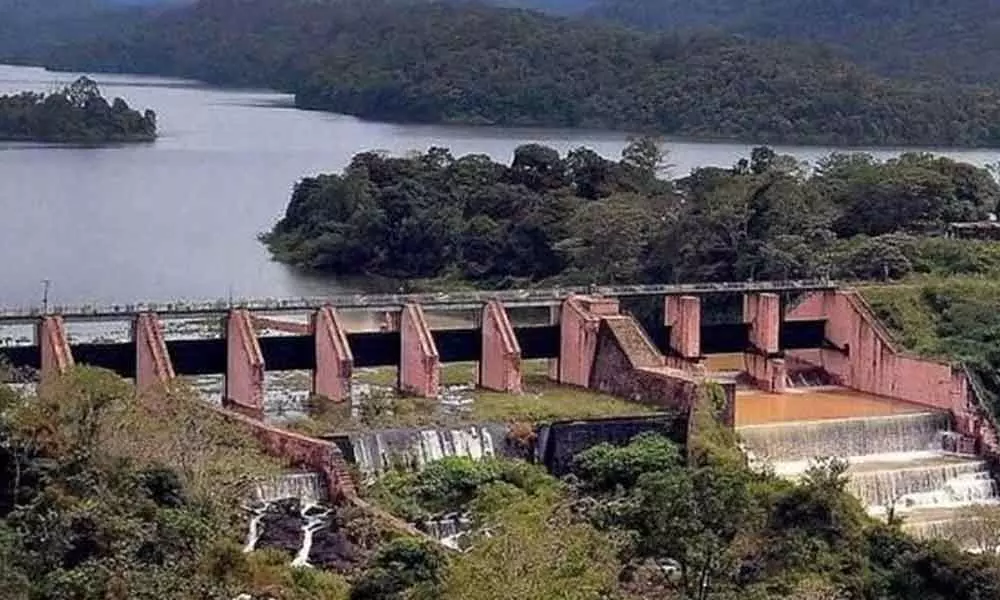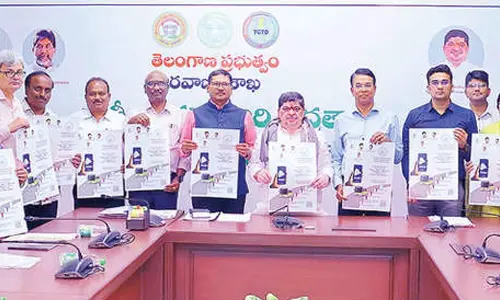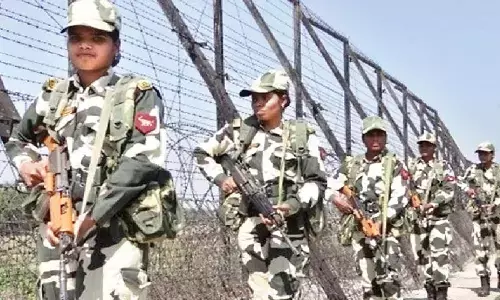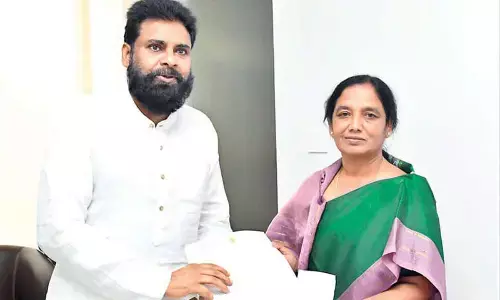Three water Bills threatening federalism

The federalism of Indian Constitutional governance is facing serious challenge from an unexpected front this time, i.e., the river front.
The federalism of Indian Constitutional governance is facing serious challenge from an unexpected front this time, i.e., the river front.
Three Bills are presented by the Centre in the recently concluded session: a) River Basin Management Bill, 2019 proposing 13 River Basin Authorities for various river basins in our country, b) River Water Disputes Bill, 2019, to have a dispute resolution committee DRC, and c) Dam Safety Authority Bill, 2019, which significantly shift rights and authority of the States over rivers to the Centre.
With these Bills staring at federalism, the new question emerging is: Who will have final say on the water in rivers; the Centre or the States, the Peoples' representatives or bureaucrats?
Indian federal structure is categorically explained by the separation of powers between three estates- Legislature, Executive and Judiciary, and distribution of powers among three tiers - Centre, States and local bodies.
The flowing water, lifeline for mankind in the nation, is a major subject that controls the resources, agriculture and power over the rivers. Hence the 'water' as subject is classified by the Constitution of India as State subject, among the functional jurisdictions of Union, State and local governments.
It is essentially a State subject, and the Union comes in only in case of interstate river waters and disputes over it. The States List II of the Seventh Schedule, entry 17, water, that is to say, water supplies, irrigation and canals, drainage and embankments, water storage and waterpower subject to the provisions of entry 56 of List I;
The Entry 56 of Union List (I) reads: "Regulation and development of interstate rivers and river valleys to the extent to which such regulation and development under the control of the Union, is declared by Parliament by law to the expedient in the public interest".
Article 262 – which deals with adjudication of disputes relating to matters of interstate rivers or river valleys, that reads: Parliament may by law provide for the adjudication on any dispute or complaint with respect to the use, distribution or control of water of, or in, any interstate river or river valley.
(2) Notwithstanding anything in this Constitution, Parliament may by law provide that neither the Supreme Court nor any other Court shall exercise jurisdiction in respect of any such dispute or complaint as is referred to in clause (1).
Exercising the jurisdiction over interstate rovers, the Parliament passed two significant legislations – River Boards Act, 1956 and Interstate Water Disputes Act, 1956.
The River Boards Act was enacted with the objective of enabling the Union government to create, in consultation with the State governments and these boards are supposed to advise on the integrated development of inter-State basins.
The River Boards were supposed to prevent conflicts by preparing developmental schemes and working out the costs to each State. No water board, however, has so far been created under the River Boards Act, 1956.
National Commission for Review of Working of the Constitution NCRWC, has observed that it is a fact that in relation to regulation and development of interstate waters, the River Boards Act, 1956 has remained a dead letter.
The Centre also once contemplated to take out the 'water' from States to the Union list stating that it was needed for effective resolution of interstate river water disputes and linking of rivers etc. There was a mixed reaction to this proposal.
There was discussion in Rajya Sabha on depriving of States the primacy over 'water' as their subject, two MPs agreed to this proposition. Sharad Yadav was of the opinion that 'water' should be shifted from concurrent list to Central list, "otherwise our country will be ruined'.
Uma Bharati, former Union Minister of Water Resources, River Development and Ganga Rejuvenation, though agreed with this view, was apprehensive that it would provoke a controversy.
K J Joy, Coordinator, Forum for Policy Dialogue on Water Conflicts in India, did not agree with this. He said: "The Centre already has powers to effectively intervene in interstate water issues and disputes through the Interstate River Water Disputes Act, 1956 (IRWD Act) and the River Boards Act, 1956.
Our experience with water tribunals has been dismal, and governments have never made serious attempts to implement the River Boards Act for political reasons. There is a need to revisit both these Acts to ascertain whether we can streamline them and make them more effective".
Philippe Cullet, Senior Visiting fellow, Centre for Policy Research, pointed out the need for local regulation of water, which has become more pertinent since groundwater extraction has increased significantly since the Constitution was adopted.
Phillippe brought out another important aspect. He says the cooperation among States has become paramount since water needs to be addressed simultaneously, both at the local and global levels. He also said: "The Waterways Act, 2016, is an assertion of this centralisation, and this can be done within the existing constitutional framework — a number of rivers have already been given the "national" tag.
One of the shortcomings of the River Boards Act is that it does not offer a framework to solve disputes. So, each water tribunal has to adjudicate without any legal framework. This explains, in part, the length of the proceedings and the difficulty in getting awards implemented".
Highly contentious issues between Tamil Nadu and Kerala over Mullaperiyar dam, and between Tamil Nadu and Karnataka for Kaveri water, besides eternal controversies around Krishna and Godavari waters in south India, and similar problems in north India raise problem of non-compliance of awards by interstate river water dispute issues and eternal litigation over the awards in higher courts.
The Constitution by itself cannot offer any solution to the difficulties in resolving the river conflicts among the States. Lack of cooperation between the States and continuous litigation between them will naturally lead to concentration of power in the 'Centre'.
Prof M K Ramesh, NLSIU, Bengaluru, said that these difficulty in effective resolution of interstate water conflicts, has been used as a handle for strengthening the arguments on centralisation of lawmaking power with the Centre.
He observed that there was hardly any concrete evidence available to demonstrate that such route was more desirable and effective than trusting the States in this regard.
The National Commission for Review of Working of Constitution recommended a new comprehensive legislation, which should clearly define the constitution of the River Boards and their jurisdiction so as to regulate, develop and control all interstate rivers keeping intact the adjudicated and the recognised rights of the States through which the interstate river passes and their inhabitants.
The NCRWC also pleaded for effective and meaningful consultation will all the State governments before bringing such legislation. The States have a constitutional duty to protect rights of its people over the rivers that pass through them.
(The writer is former Central Information Commissioner and Professor of Law, at Bennett University, Greater Noida)









